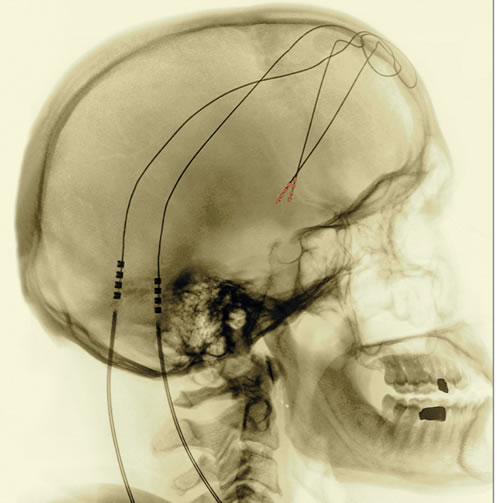 A five year study conducted with thousands of local teenagers by University of Montreal researchers reveals that those who used speed (meth/ampthetamine) or ecstasy (MDMA) at fifteen or sixteen years of age were significantly more likely to suffer elevated depressive symptoms the following year. “Our findings are consistent with other human and animal studies that suggest long-term negative influences of synthetic drug use,” said co-author Frédéric N. Brière of the School Environment Research Group at the University of Montreal. “Our results reveal that recreational MDMA and meth/amphetamine use places typically developing secondary school students at greater risk of experiencing depressive symptoms.” Ecstasy and speed-using grade ten students were respectively 1.7 and 1.6 times more likely to be depressed by the time they reached grade eleven. [continue reading…]
A five year study conducted with thousands of local teenagers by University of Montreal researchers reveals that those who used speed (meth/ampthetamine) or ecstasy (MDMA) at fifteen or sixteen years of age were significantly more likely to suffer elevated depressive symptoms the following year. “Our findings are consistent with other human and animal studies that suggest long-term negative influences of synthetic drug use,” said co-author Frédéric N. Brière of the School Environment Research Group at the University of Montreal. “Our results reveal that recreational MDMA and meth/amphetamine use places typically developing secondary school students at greater risk of experiencing depressive symptoms.” Ecstasy and speed-using grade ten students were respectively 1.7 and 1.6 times more likely to be depressed by the time they reached grade eleven. [continue reading…]
Depression

Image: iStockphoto
Text messaging often gets a bad rap for contributing to illiteracy and high-risk behavior such as reckless driving. But a social welfare professor at the University of California, Berkeley, has found an upside to texting, especially for people who feel stressed out, isolated and alone.
Adrian Aguilera, a clinical psychologist who treats many low-income Latinos for depression and other mental disorders, said his patients report feeling more connected and cared for when they receive text messages asking them to track their moods, reflect on positive interactions, and take their prescribed medications.
“When I was in a difficult situation and I received a message, I felt much better. I felt cared for and supported. My mood even improved,” reported one Spanish-speaking patient in Aguilera’s cognitive behavior therapy group at San Francisco General Hospital.
The project began in 2010 when Aguilera developed a customized “Short Message Service (SMS)” intervention program, with the help of UCSF psychologist Ricardo Munoz, in which Aguilera’s patients were sent automated text messages prompting them to think and reply about their moods and responses to positive and negative daily interactions.
The psychologists published the results of the project last year in the journal, Professional Psychology: Research and Practice. Aguilera has since been awarded a $75,000 grant from the Robert Wood Johnson Foundation. [continue reading…]
Negative thinking is a red flag for clinical depression. Stopping such thoughts early on can save millions of people from mental illness,according research study from the Frances Payne Bolton School of Nursing at Case Western Reserve University.
Jaclene Zauszniewski, the Kate Hanna Harvey Professor in Community Health Nursing and associate dean for doctoral education at the school, has developed a brief 8-item survey to help healthcare providers identify depressive thinking patterns that may lead to serious depression if not identified and addressed early.
Zauszniewski’s Depression Cognition Scale (DCS) asks individuals to respond to questions about helplessness, hopelessness, purposelessness, worthlessness, powerlessness, loneliness, emptiness and meaninglessness using a scale that ranges from “strongly agree” to “strongly disagree.” [continue reading…]

(c) Foto: Universitätsklinikum Bonn Prof. Dr. Thomas E. Schläpfer
Brain pacemakers have a long-term effect in patients with the most severe depression. This has now been proven by scientists from the Bonn University Medical Center. Eleven patients took part in the study over a period of two to five years. A lasting reduction in symptoms of more than 50% was seen in nearly half of the subjects. A new perspective is thus opened for people with the most severe depression who do not respond to any other therapy. The results are now being presented in the current edition of the journal “Neuropsychopharmacology.”
People with severe depression are constantly despondent, lacking in drive, withdrawn and no longer feel joy. Most suffer from anxiety and the desire to take their own life. Approximately one out of every five people in Germany suffers from depression in the course of his/her life – sometimes resulting in suicide. People with depression are frequently treated with psychotherapy and medication. “However, many patients are not helped by any therapy,” says Prof. Dr. Thomas E. Schläpfer from the Bonn University Medical Center for Psychiatry and Psychotherapy. “Many spend more than ten years in bed – not because they are tired, but because they have no drive at all and they are unable to get up.”
One possible alternative is “deep brain stimulation,” in which electrodes are implanted in the patient’s brain. The target point is the nucleus accumbens – an area of the brain known as the gratification center. There, a weak electrical current stimulates the nerve cells. Brain pacemakers of this type are often used today by neurosurgeons and neurologists to treat ongoing muscle tremors in Parkinson’s disease. [continue reading…]
